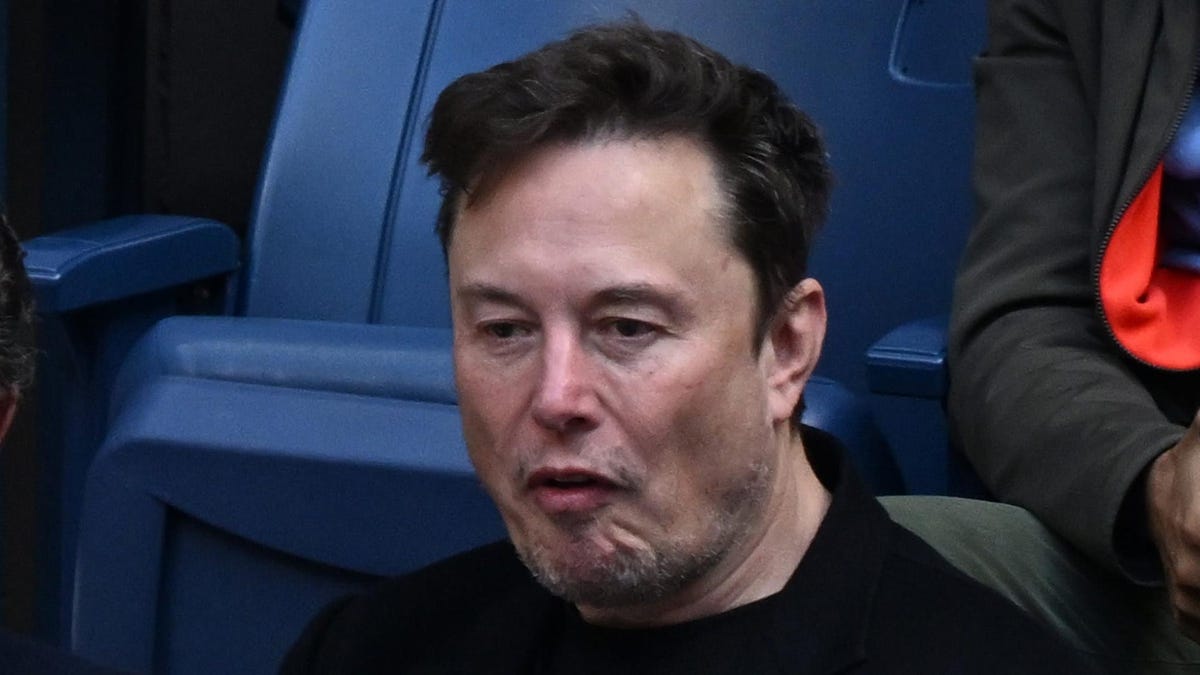Even the techiest tech bros in the world are starting to turn on Tesla and its CEO, Elon Musk. Car buyers in California’s Silicon Valley – where Tesla was started – are leaving the brand as its lineup rapidly ages, the competition gets stronger and Musk becomes even more of a right-wing piece of shit on social media. This isn’t just a vibe-based thing either. There’s hard data pointing to folks in the Bay Area saying no to Tesla and Musk.
This marriage between Tesla and Silicon Valley really started to fall apart when the CEO moved Tesla’s headquarters to Austin, Texas back in 2021 because of COVID-19 restrictions at its Fremont factory. It seems folks in the area are returning the favor. It certainly helps that the folks who would have bought Teslas are turning to other brands like Lucid, Rivian and Hyundai – brands that haven’t been marred by Musk’s antisemitism, transphobia, racism and overall support of former president Donald Trump on social media, according to Automotive News.
Here’s more on where Tesla is in the eyes of folks in Silicon Valley:
“I pull up to an intersection and every car is a Tesla Model Y, and I’m also driving one because it’s the modern Toyota Camry,” said Loren McDonald, head of Silicon Valley consultancy EVAdoption. “But there are a lot of reluctant Tesla owners who don’t want to give Elon any more money. More and more people have just had it with him.”
In Santa Clara County, the heart of Silicon Valley, new Tesla registrations fell 22 percent from January through July from the same period a year earlier, while EV rivals saw 41 percent growth, according to S&P Global Mobility. The data includes new battery-electric vehicles but not hybrids.
In the broader five-county tech corridor, Tesla registrations fell 21 percent in the same period while non-Tesla EVs grew 1.4 percent, according to S&P Global Mobility. The other counties are Alameda, San Mateo, Contra Costa and San Francisco. The Silicon Valley Historical Association considers all to be within the region.
Analysts are pointing to the fact that the company’s volume of vehicles – the Model 3 sedan and Model Y crossover – need total redesigns. The Model 3 saw its real mid-cycle refresh at the end of 2023, but for the most part, it’s the same car that has been on sale since the 2018 model year. The Model Y is still waiting on its facelift, so it has been largely unchanged since hitting the market for the 2020 model year.
At the same time, it’s not even worth mentioning the Model S and Model X. Those just aren’t selling well in general and are downright ancient at this point. The company’s flagship – the Cybertruck – is the newest car they make, but the whole (terrible) look of the thing is keeping a lot of folks away. Despite all of this, Tesla has the highest brand loyalty in the U.S. at around 70 percent, according to AutoNews, but the same cannot be said for the Bay Area.
Even if you put the aging and polarizing lineup to the side, Silicon Valley still has a major problem with Musk and his aggressive move to the far right – Laura Loomer – side of politics. Automotive News took a deep look at how his messaging on his social media site, X, is resonating with a fairly liberal buyer base in the Bay Area:
“The general rule for anybody who reads a business section is you don’t want to do anything to upset a huge percentage of your customer base, and Musk is ripping up the rule book and throwing it in the garbage,” said Brian Maas, president of the California New Car Dealers Association.
Musk endorsed Republican Donald Trump for president in July. In September, Musk directed an X post at pop superstar Taylor Swift, saying cryptically, “I will give you a child and guard your cats,” after she endorsed Democratic candidate Kamala Harris. On X, #ElonIsCreepy became a trending topic despite Musk suggesting the comment was a joke.
Musk sometimes posts on X dozens of times a day, promoting what his critics call conspiracy theories. Musk says he’s expressing his political beliefs, defending free speech and engaging in humor on the platform he bought in 2022.
“I can’t think of anyone that is not only this controversial but is purposely controversial,” Maas said of Musk.
[…]
Nationwide, Tesla’s favorability among “Democrats/liberals” fell to 18 percent in July compared with 39 percent in January, according to a survey by data analytics firm CivicScience. Among “Republicans/conservatives,” Tesla’s favorability fell to 22 percent in July compared with 36 percent in January, the firm said.
”The EV buyer base swings harder to the left in the U.S.,” CivicScience said. “Democrats are twice as likely as Republicans to purchase an EV. Democrats are also more likely to associate Elon Musk with the brand and to be less interested in Tesla as a result.”
As a whole, Tesla registrations fell 12 percent from January through July in California, AutoNews reports. That’s outpacing the U.S. Tesla resignations decline of 8.5 percent in the first seven months of the year. Still, despite the drop, Tesla still commands 56 percent of the California EV market. Sure, it’s down from the 64 percent it was at a year ago, but it’s still an incredibly strong number.

